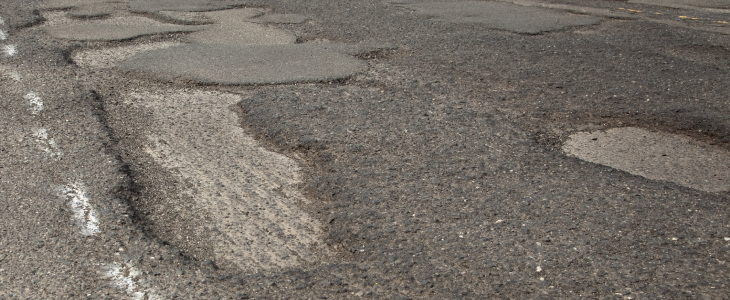If you’ve been involved in an accident due to poor road conditions, you may wonder what your next steps should be. A New Jersey personal injury attorney can guide you through the process of determining who is responsible and how you can seek compensation for your injuries or property damage. Let’s explore who may be responsible for these types of accidents.
Understanding the Role of Poor Road Conditions in Accidents
No doubt about it, poor road conditions contribute to accidents. Unfortunately, they are often overlooked as a primary cause. When we pay local and state taxes, we expect that part of those funds will be used to maintain safe road infrastructure. However, this isn’t always the case.
Consider cases where accidents happen due to bad road conditions—such as a malfunctioning traffic signal, debris that causes a driver to lose control, inadequate signage, objects falling from vehicles, or even potholes and cracks in the pavement. These factors can lead to significant vehicle damage or accidents without involving another car.
Identifying the cause of an accident becomes particularly challenging when there are no witnesses or dashcam footage.
Who is Responsible: Navigating Road Conditions and Liability
When you get into a wreck because of bad road conditions, figuring out who’s to blame isn’t always easy. Who’s supposed to be taking care of these roadways anyway? Too often, we see different agencies pointing the finger at each other. Let’s break down who might be on the hook for your car’s new dents and your sore neck:
- Local Government: These are the folks who handle most street maintenance. If your accident happened because of a pothole or a failed traffic light, the city or county might be responsible.
- State Agencies: For accidents on highways or state roads, it’s usually the state’s job to keep things smooth. This includes everything from clearing debris to making sure the signage is up to snuff.
- Contractors: Sometimes, the government outsources road work to private companies. If these contractors did a shoddy job or left hazardous conditions behind, they could be liable.
- Utility Companies: Ever dodged a manhole that sticks out too much? Utility companies might be to blame if their maintenance work messes with road safety.
Nailing down responsibility is essential because it determines who you might be able to sue to cover your damages and medical bills.
Holding Municipalities Accountable: Suing Local or State Government Entities
When a pothole turns your commute into a costly nightmare, it might seem straightforward to point a finger at the local or state government. But suing a government entity in New Jersey? That’s a whole different ballgame. Here’s a quick breakdown of what you need to know about holding municipalities accountable:
- Tort Claims Act Notice: Before you can file a lawsuit, New Jersey requires that you notify the relevant government entity within 90 days of the incident. This is crucial, and the clock starts ticking the moment the accident happens.
- Proving Negligence: Just showing that the road was bad isn’t enough. You need to demonstrate that the government knew or should have known about the poor conditions and failed to fix them.
- Sovereign Immunity: This old rule often protects government agencies from being sued. However, there are exceptions, especially if it’s clear that negligence played a part in the injury.
- Damage Caps: Even if you win, New Jersey law caps the amount of damages you can receive from a government entity, so set your expectations accordingly.
Suing the government is tough, and it’s wrapped in red tape and specific legal steps. If you’re serious about pursuing a claim, consulting with a New Jersey attorney who specializes in this area can be a game changer. They’ll help you navigate the complexities and increase your chances of getting compensated for those unexpected car repairs and doctor visits.
Reach Out to New Jersey Personal Injury Attorneys for a Free Consultation
It will be critical to get an attorney to help you determine what exactly caused your accident if it wasn’t another driver. Our attorneys are highly experienced. Contact us today for a consultation.

